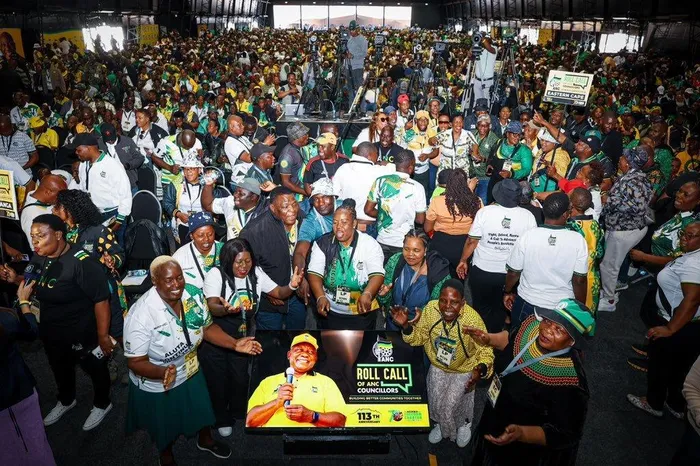ANC's roll call slammed as a desperate bid for political revival

ANC's FNB Stadium roll call criticised as political theatre amid governance failures
Image: Supplied
The African National Congress’s (ANC) recent roll call gathering for councillors at FNB Stadium has sparked sharp criticism, with opponents branding the event as little more than a political maneuver to revive a party struggling to govern effectively after more than three decades in power.
On Monday, thousands of ANC councillors from across South Africa assembled at the iconic stadium to evaluate their performance since the 2021 local government elections.
The meeting comes as the party prepares for the 2026 local government elections, but instead of inspiring confidence, the event has drawn ire from political analysts and opposition figures alike.
Facing mounting public dissatisfaction over corruption scandals, inadequate service delivery, and widespread governance failures, President Cyril Ramaphosa openly admitted that his party was underperforming in nearly every municipality it controlled.
Yet experts argue that the roll call was more about optics and electioneering than genuine accountability.
“If you're serious about service delivery, you would not have to wait four years before you can realise that all these municipalities have failed the people, and instead of taking action, the president resorted to motivating failed councillors to correct their irreversible failures,” said political commentator Joe Mhlanga.
Mhlanga stated that while Ramaphosa acknowledged the ANC’s weak performance in municipalities, the party has repeatedly failed to hold its representatives accountable.
“President Ramaphosa knows very well that there's no capacitated oversight authority that can ensure that the executives and officials in municipalities deliver the most required services to communities.”
“The whole public display yesterday is just another effort to make people think the ANC is concerned,” Mhlanga asserted.
Historian Khaya Mthethwa provided a historical perspective, pointing to the ANC's legacy of unfulfilled promises.
“In the 1994 Manifesto ahead of the elections, the ANC under Mandela promised to build a democratic South Africa with one education system, free compulsory education for all children.
“However, graduates have recently faced threats of blacklisting for their inability to repay student debts,” Mthethwa noted.
He further highlighted that the ANC’s 2019 manifesto emphasised building a developmental state focused on prioritising people, combating corruption, and addressing socio-economic challenges such as unemployment and poverty.
“However, poverty has deepened, with unemployment and crime continuing to rise."
Mthethwa stated that the ANC has created a long-standing perception of a lack of direction and leadership within the party when delivering robust governance at the grassroots level.
“The ANC is at a critical crossroads as dissatisfaction grows and opposition parties seek to seize on governance failures to weaken its grip on power… This is why they summoned councillors to FNB,” argued Mthetwa.
On Monday, the party secretary general, Fikile Mbalula, defended the ANC, saying that the roll call is part of the party's introspection and accountability measures.
He said their deployees will do their work knowing precisely what is expected of them.
thabo.makwakwa@inl.co.za
IOL Politics
Related Topics: